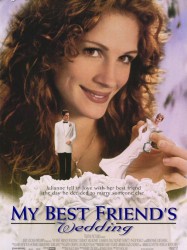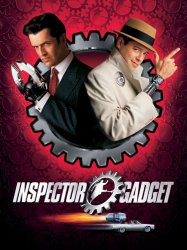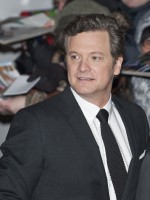Rupert Everett is a Actor, Director, Scriptwriter and Executive producer British born on 29 may 1959

Rupert James Hector Everett (/ˈɛvərɪt/; born 29 May 1959) is an English actor and writer. He first came to public attention in 1981, when he was cast in Julian Mitchell's play and subsequent film Another Country (1984) as an openly gay pupil at an English public school in the 1930s. He has since appeared in many other films, including My Best Friend's Wedding, An Ideal Husband, The Next Best Thing and the Shrek sequels.
Political views
Everett is a patron of the British Monarchist Society and Foundation.
In 2006, as a homeowner in the central London area of Bloomsbury, Everett publicly supported a campaign to prevent the establishment of a local Starbucks branch, and referred to the global chain as a "cancer". Everett protested alongside one thousand other residents and the group compiled a signed petition.
During 2013, Everett, a former sex worker, worked on the production of a documentary on sex work for Channel 4 that includes the issue of criminalisation. Both during and after the filming of the documentary, Everett contributed to the discourse on prostitution legislation in the UK: In October 2013, Everett signed an open letter by the English Collective of Prostitutes and Queer Strike—alongside groups and organizations such as the Association of Trade Union Councils, Sex Worker Open University, Left Front Art – Radical Progressive Queers, Queer Resistance and Queers Against the Cuts—to oppose the adoption of the "Swedish model", whereby only the clients of sex workers, but not the sex workers themselves, are criminalised.
Everett continued his participation in the sex work legislation debate in 2014, writing a long form piece for The Guardian and appearing on the BBC One programme This Week. Everett's January Guardian article was published in the wake of police human trafficking raids in the Soho area of London and he wrote:
There is a land grab going on in Soho under the banner of morality. That night ... 200 of our boys in blue raided more than 20 models' flats, arresting 30 girls and confiscating their earnings ... They broke down doors, intimidated girls into accepting cautions (ie criminal records) and served civil-eviction papers that, unless you were a lawyer, you would not know had hidden in their depths (20-odd pages) the time and date you were to appear in court if you wanted to appeal. All this in the name of human trafficking ... But while even the police say that more than 90% of prostitutes work of their own accord, trafficking has become one of the new "it" words in the bankrupt moral vernacular, craftily used by puritans, property developers and rogue feminists to combat the sex trade in general. Sections 52 and 53 of the Sexual Offences Act ... shelter under the anti-trafficking umbrella. These laws are created to protect women. In reality, they are putting working girls on to the street and into great danger.
Everett also joined protesters in a demonstration outside the offices of Soho Estates, a major property company that owns properties on Soho's Walkers Court, where many sex workers are based. Everett informs the reader that Soho Estates received approval to demolish properties on Walkers Court to create space for the construction of "two hideous towers replete with heliports". Everett concludes the article by declaring that Soho is "being reduced to a giant waxwork in a museum, nothing more than the set for a foreign film."
In his appearance on BBC One's This Week, Everett engaged in a debate with regular panellists Michael Portillo and Diane Abbott. Portillo agreed with Everett, while Abbott supported the Swedish model.
Everett criticised the introduction of same-sex marriage, stating: '"I loathe heterosexual weddings. The wedding cake, the party, the champagne, the inevitable divorce two years later. It's just a waste of time in the heterosexual world, and in the homosexual world I find it personally beyond tragic that we want to ape this institution that is so clearly a disaster."'
Source : Wikidata
Rupert Everett

Rupert James Hector Everett (/ˈɛvərɪt/; born 29 May 1959) is an English actor and writer. He first came to public attention in 1981, when he was cast in Julian Mitchell's play and subsequent film Another Country (1984) as an openly gay pupil at an English public school in the 1930s. He has since appeared in many other films, including My Best Friend's Wedding, An Ideal Husband, The Next Best Thing and the Shrek sequels.
Biography
He is openly gay. Between 2006 and 2010, Everett lived in New York City, U.S., but returned to London, because of his father's poor health. In 2008, Everett purchased a home in the West London district of Belgravia.Political views
Everett is a patron of the British Monarchist Society and Foundation.
In 2006, as a homeowner in the central London area of Bloomsbury, Everett publicly supported a campaign to prevent the establishment of a local Starbucks branch, and referred to the global chain as a "cancer". Everett protested alongside one thousand other residents and the group compiled a signed petition.
During 2013, Everett, a former sex worker, worked on the production of a documentary on sex work for Channel 4 that includes the issue of criminalisation. Both during and after the filming of the documentary, Everett contributed to the discourse on prostitution legislation in the UK: In October 2013, Everett signed an open letter by the English Collective of Prostitutes and Queer Strike—alongside groups and organizations such as the Association of Trade Union Councils, Sex Worker Open University, Left Front Art – Radical Progressive Queers, Queer Resistance and Queers Against the Cuts—to oppose the adoption of the "Swedish model", whereby only the clients of sex workers, but not the sex workers themselves, are criminalised.
Everett continued his participation in the sex work legislation debate in 2014, writing a long form piece for The Guardian and appearing on the BBC One programme This Week. Everett's January Guardian article was published in the wake of police human trafficking raids in the Soho area of London and he wrote:
There is a land grab going on in Soho under the banner of morality. That night ... 200 of our boys in blue raided more than 20 models' flats, arresting 30 girls and confiscating their earnings ... They broke down doors, intimidated girls into accepting cautions (ie criminal records) and served civil-eviction papers that, unless you were a lawyer, you would not know had hidden in their depths (20-odd pages) the time and date you were to appear in court if you wanted to appeal. All this in the name of human trafficking ... But while even the police say that more than 90% of prostitutes work of their own accord, trafficking has become one of the new "it" words in the bankrupt moral vernacular, craftily used by puritans, property developers and rogue feminists to combat the sex trade in general. Sections 52 and 53 of the Sexual Offences Act ... shelter under the anti-trafficking umbrella. These laws are created to protect women. In reality, they are putting working girls on to the street and into great danger.
Everett also joined protesters in a demonstration outside the offices of Soho Estates, a major property company that owns properties on Soho's Walkers Court, where many sex workers are based. Everett informs the reader that Soho Estates received approval to demolish properties on Walkers Court to create space for the construction of "two hideous towers replete with heliports". Everett concludes the article by declaring that Soho is "being reduced to a giant waxwork in a museum, nothing more than the set for a foreign film."
In his appearance on BBC One's This Week, Everett engaged in a debate with regular panellists Michael Portillo and Diane Abbott. Portillo agreed with Everett, while Abbott supported the Swedish model.
Everett criticised the introduction of same-sex marriage, stating: '"I loathe heterosexual weddings. The wedding cake, the party, the champagne, the inevitable divorce two years later. It's just a waste of time in the heterosexual world, and in the homosexual world I find it personally beyond tragic that we want to ape this institution that is so clearly a disaster."'
Best films
Usually with
Filmography of Rupert Everett (52 films)
Actor
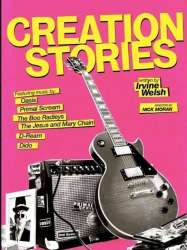
Creation Stories (2021)
Directed by Nick Moran
Origin United-kingdom
Genres Drama, Biography, Musical
Themes Films about music and musicians, Musical films
Actors Ewen Bremner, Jason Isaacs, Rupert Everett, Suki Waterhouse, Jason Flemyng, Paul Kaye
Rating60%





Voici l'histoire d'Alan McGee, magnat de la musique, du jour où il arrête sa scolarité à l'âge de 16 ans pour ensuite créer la fameuse boite branchée de Londres appelée le « Living Room » ainsi que son label Creation Records qui auront un très gros impact sur la Culture britannique.

Warning (2020)
Origin USA
Genres Drama, Science fiction, Thriller
Actors Alex Pettyfer, Alice Eve, Mena Massoud, Annabelle Wallis, Annabel Mullion, Charlotte Le Bon
Roles Charlie
Rating46%





Voici une évocation de la solitude, de la mort et de la vie dans un futur proche sur Terre, où les destins de plusieurs personnes vont se croiser.
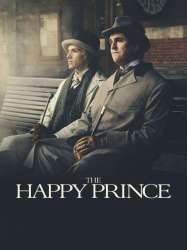
The Happy Prince (2018)
, 1h45Directed by Rupert Everett
Origin German
Genres Drama, Biography, Comedy, Historical
Themes Films about writers, Films about sexuality, LGBT-related films, LGBT-related film
Actors Colin Firth, Rupert Everett, Colin Morgan, Emily Watson, Tom Wilkinson, Anna Chancellor
Roles Oscar Wilde
Rating63%





Les derniers jours d'Oscar Wilde, vivant dans l’échec et la misère…
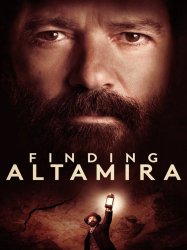
Finding Altamira (2016)
Directed by Hugh Hudson
Origin Espagne
Genres Drama, Historical
Actors Antonio Banderas, Rupert Everett, Golshifteh Farahani, Pierre Niney, Nicholas Farrell, Henry Goodman
Roles Monseñor
Rating59%





La vie et les événements de l'homme qui a réalisé l'une des découvertes les plus importantes du XIX siècle : les grottes d'Altamira.
 , 2h7
, 2h7Directed by Tim Burton
Origin USA
Genres Drama, Science fiction, Fantastic, Fantasy, Adventure
Themes Time travel films, Temporal paradox, Children's films
Actors Asa Butterfield, Eva Green, Samuel L. Jackson, Ella Purnell, Allison Janney, Terence Stamp
Roles Ornithologist
Rating67%





A 16-year-old boy named Jacob Portman accidentally works himself onto a mysterious island where he helps a group of peculiar orphan children at Miss Peregrine's Home for Peculiar Children, protecting them and leading them away from horrible creatures who are out to destroy them.
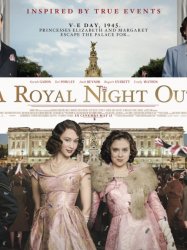
A Royal Night Out (2015)
, 1h37Directed by Julian Jarrold
Origin United-kingdom
Genres Drama, Thriller, Comedy, Romantic comedy, Romance
Actors Sarah Gadon, Bel Powley, Jack Reynor, Rupert Everett, Emily Watson, Roger Allam
Roles King George
Rating64%





On V.E. Day in 1945, as peace is declared across Europe and London is celebrating, Princesses Elizabeth and Margaret are allowed to join the celebrations, against the Queen's wishes. The King, impressed by Elizabeth's pleading, asks her to report back on the people's feelings towards him and his midnight speech on the radio.
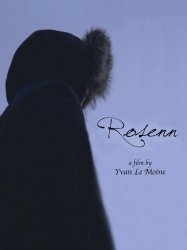
Rosenn (2014)
, 1h40Directed by Yvan Le Moine
Origin Belgique
Genres Drama
Actors Hande Kodja, Rupert Everett, Stanislas Merhar, Jacques Boudet, Stefano Cassetti, Béatrice Dalle
Roles Lewis Lafoly
Rating60%





C'est l'histoire de la rencontre passionnelle entre un célèbre écrivain anglais, Lewis Lafoly, la quarantaine élégante en lassitude et une jeune femme lumineuse, Rosenn Auroch', sur l'île Bourbon, dans l'océan indien, en 1909...
 , 1h30
, 1h30Origin Espagne
Genres Fantasy, Adventure, Animation
Themes Films about magic and magicians, Children's films
Actors Saoirse Ronan, Freddie Highmore, Mark Strong, Antonio Banderas, Julie Walters, Olivia Williams
Roles Sota (voice)
Rating59%





Justin (Freddie Highmore) lives in the kingdom of Gabylonia, where bureaucrats rule and knights have been ousted. His dream is to become one of the Knights of Valour, like his grandfather, Sir Roland. But his father Reginald (Alfred Molina), a widower and the chief counsel to the Queen (Olivia Williams), wants his son to follow in his footsteps and become a lawyer. After an argument with his father, Justin seeks comfort from his grandmother (Julie Walters), a friend of the Queen, who encourages him to follow his dreams. Justin notices that his grandfather's sword is missing. He decides to go and find his grandfather's sword as his quest. His grandmother gives him a key which originally belonged to his grandfather and tells him to go to an abbey where three wise monks would train him. Before Justin leaves on his quest, he visits his crush Lara (Tamsin Egerton) who is a spoilt brat and the daughter of the kingdom's greatest economic. He wants to say farewell to her, though she is not really listening.

Hysteria (2011)
, 1h35Directed by Tanya Wexler
Origin United-kingdom
Genres Comedy, Romantic comedy, Romance
Themes Feminist films, Medical-themed films, Films about sexuality
Actors Maggie Gyllenhaal, Hugh Dancy, Rupert Everett, Felicity Jones, Jonathan Pryce, Ashley Jensen
Roles Lord Edmund St. John-Smythe
Rating66%





Set at the end of 1880, the film depicts the invention of the vibrator. Dr. Mortimer Granville (Hugh Dancy) is a young physician who has difficulty with his occupation due to constant arguments over modern medicine. He gets a job assisting Dr. Dalrymple (Jonathan Pryce), whose practice specializes in the treatment of "hysteria", a popular diagnosis for women of that time. Medical practitioners like Dr. Dalrymple tried to manage hysteria by massaging the genital area, decently covered under a curtain, to elicit "paroxysmal convulsions", without recognizing that they were inducing orgasms. Granville meets Dr. Dalrymple's daughters, Emily (Felicity Jones), and her older sister Charlotte (Maggie Gyllenhaal), a premodern feminist who runs a settlement house in a poor section of London.

Gulp (2011)
, 2minutesOrigin United-kingdom
Genres Animation
Actors Rupert Everett
Roles a fisherman
Rating60%





ShortOfTheWeek describes the plot as "a Jonah-style adventure of a fisherman getting caught in a belly of a giant fish".

Wild Target (2010)
, 1h38Directed by Jonathan Lynn
Origin United-kingdom
Genres Comedy, Comedy-drama, Action
Actors Bill Nighy, Emily Blunt, Rupert Grint, Eileen Atkins, Rupert Everett, Martin Freeman
Roles Ferguson
Rating66%





Victor Maynard (Bill Nighy) est un assassin vieillissant et agissant exclusivement en solitaire Victor n'a de contacts qu'avec sa mère Louisa (Eileen Atkins) parfaitement au courant de son métier. Il est un jour engagé pour tuer Rose (Emily Blunt), mais malgré son efficacité légendaire, il se retrouve incapable de l'éliminer, car il commence petit à petit à éprouver des sentiments pour elle. Il épargne donc sa vie, et se retrouve, à la suite de ces évènements, affublé d'un jeune apprenti, Tony (Rupert Grint).
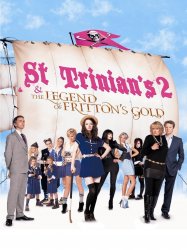 , 1h46
, 1h46Directed by Oliver Parker
Origin United-kingdom
Genres Comedy, Adventure
Themes Films about education, Films about sexuality, LGBT-related films, Transgender in film, LGBT-related films, LGBT-related film, Cross-dressing in film
Actors Rupert Everett, Colin Firth, David Tennant, Talulah Riley, Sarah Harding, Tamsin Egerton
Roles Camilla Fritton / Captain Archibald Fritton / Fortnam Fritton
Rating53%





One night, an unknown man telephones St. Trinian's and bribes a girl, Celia, to find an old ring in the school library. She is caught by the other girls, and forced to explain that the man offered her £20,000 for the ring. Annabelle, the new head girl of St. Trinian's, bartered for £100,000 from the man when he called back, but he refused and then proceeded to threaten them. Afterwards, the girls ask the headmistress, Camilla Fritton, about why the ring might be so valuable. She tells them a story about Pirate Fritton, her ancestor, who supposedly hid a great treasure somewhere in the world. He had two rings made, which when fitted together would reveal the location of the treasure.

Shrek the Third (2007)
, 1h33Directed by Chris Miller, Raman Hui
Origin USA
Genres Comedy, Fantasy, Action, Adventure, Animation
Themes Films about animals, Pregnancy films, Films about magic and magicians, Films about sexuality, Films about cats, Films about dragons, Children's films, Mise en scène d'un mammifère
Actors Mike Myers, Cameron Diaz, Eddie Murphy, Antonio Banderas, Julie Andrews, John Cleese
Roles Prince Charming (voice)
Rating61%





Prince Charming vows that he will become King of Far, Far Away and avenge the death of his mother, the Fairy Godmother. Meanwhile, King Harold is dying and his ogre son-in-law Shrek and daughter Princess Fiona are to succeed him. Shrek, who is having difficulty serving as Regent during the King's medical leave, insists that an ogre as king is a bad idea and that there must be someone else to rule the kingdom. Before dying, Harold tells Shrek of another heir: his nephew, Arthur Pendragon. Prince Charming goes to the Poison Apple tavern and persuades fairy tale villains to fight for their "happily ever after" by appealing to the defeats given in their stories.
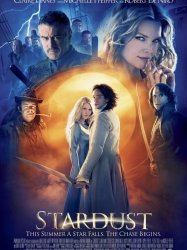
Stardust (2007)
, 2h7Directed by Matthew Vaughn
Origin USA
Genres Fantasy, Adventure, Romance
Themes Films about animals, Films about magic and magicians, Witches in film, Superhero films, Steampunk films
Actors Claire Danes, Charlie Cox, Sienna Miller, Ricky Gervais, Jason Flemyng, Mark Strong
Roles Secundus
Rating75%





A village lies near a gap in a stone wall bordering the magical kingdom of Stormhold. The gap is guarded constantly but Dunstan Thorn manages to go through and meets an enslaved princess, Una. She offers him a glass snowdrop in exchange for a kiss. Nine months later, the Wall Guard delivers a baby to Dunstan, saying his name is Tristan.

St. Trinian's (2007)
, 1h37Directed by Oliver Parker
Origin United-kingdom
Genres Science fiction, Comedy, Musical theatre
Themes Films about education, Feminist films, Films about sexuality, LGBT-related films, Transgender in film, Political films, Heist films, Gangster films, Escroquerie, LGBT-related films, LGBT-related film, Cross-dressing in film
Actors Rupert Everett, Colin Firth, Russell Brand, Antonia Bernath, Talulah Riley, Lena Headey
Roles Camilla Fritton / Carnaby Fritton
Rating58%





Annabelle Fritton (Talulah Riley), an uptight daddy’s girl, unwillingly transfers to St Trinian’s from the distinguished Cheltenham Ladies’ College at her father’s (Rupert Everett) request. Annabelle is clearly different and doesn’t fit in, telling her father, Carnaby Fritton, that the school is “like Hogwarts for pikeys”. She is taken around the school by Kelly Jones (Gemma Arterton), the head girl, who introduces her to the various cliques within the school, including Emos, Chavs, Geeks and the First Years. On her first night at St Trinian’s, Annabelle calls her father and demands he pick her up immediately, following a series of pranks played on her by the other students, but her father dismisses her.
 Connection
Connection
